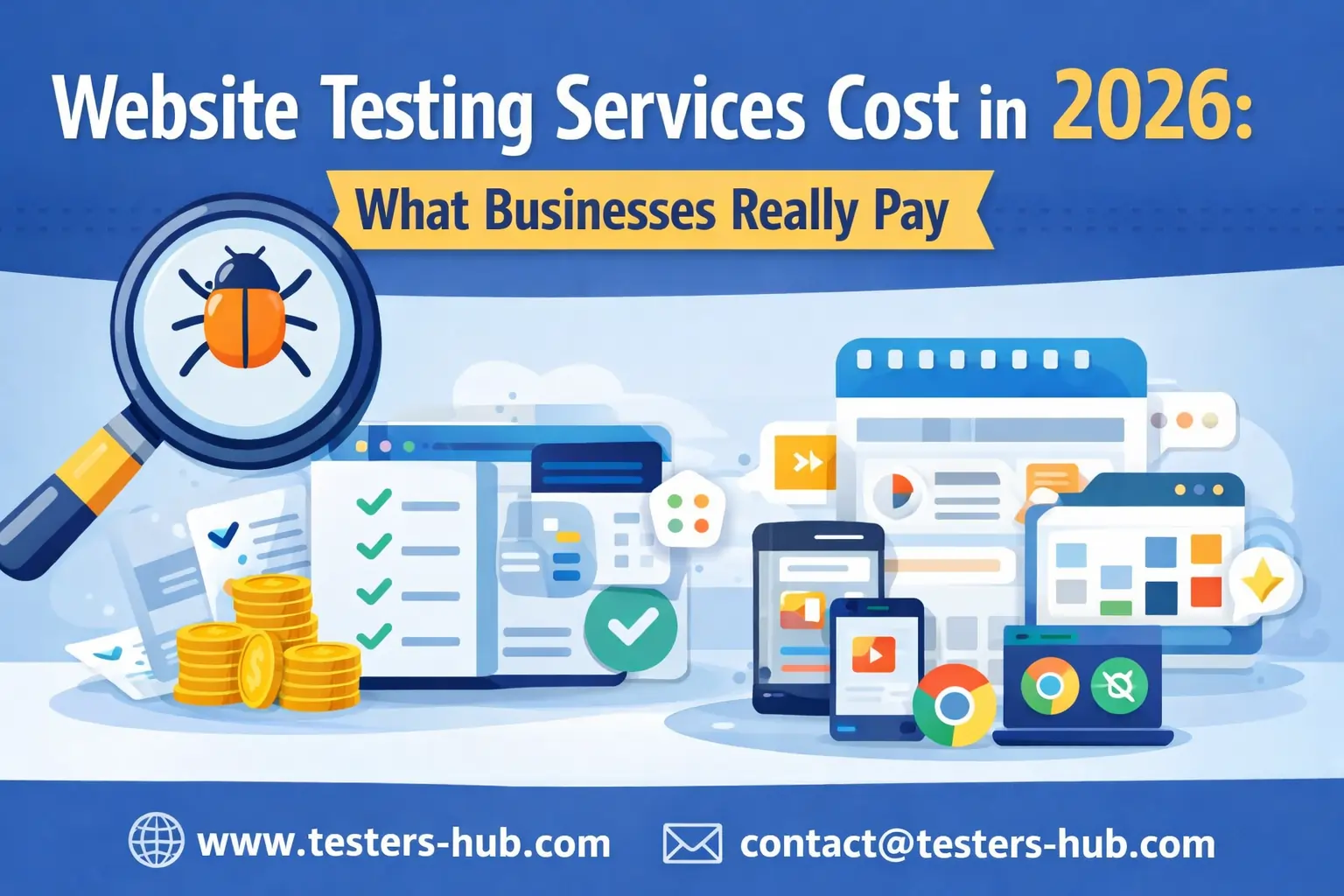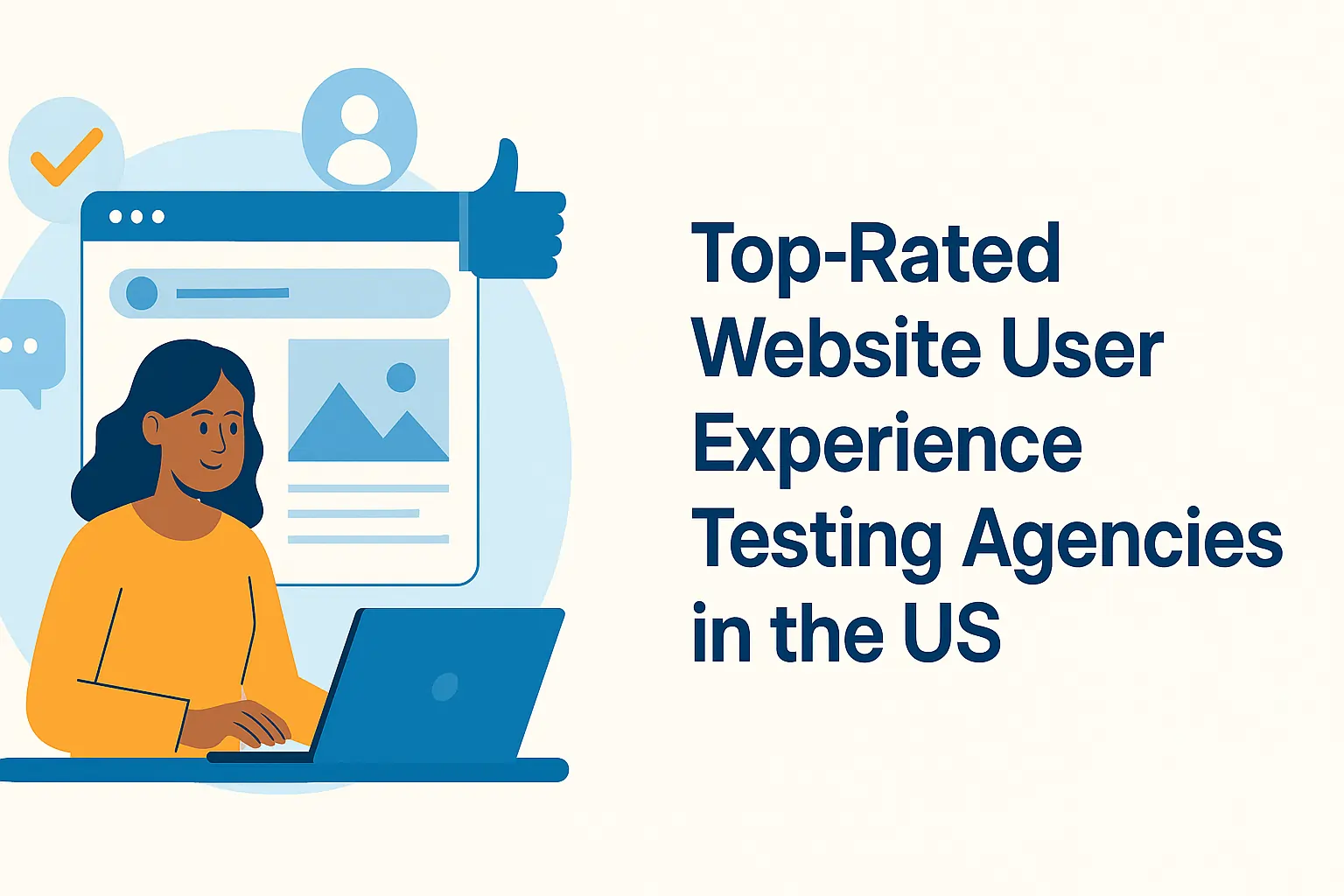Top Website Testing Services Trends to Watch in 2025
As we approach 2025, Artificial Intelligence (AI) and Machine Learning (ML) are set to dramatically reshape website testing services. These advanced technologies are transforming the way testing is conducted, offering significant improvements in both efficiency and precision.
1. AI-Driven Website Testing Services: Revolutionizing Accuracy and Efficiency
AI-driven website testing is poised to bring substantial advancements by 2025. These technologies offer several key advantages:
- Automated Test Case Generation: AI systems analyze user interactions to automatically create relevant test cases, ensuring comprehensive coverage.
- Improved Bug Detection: AI tools enhance accuracy by learning from historical data, reducing the likelihood of undetected issues.
- Streamlined Maintenance: AI can address and resolve unstable tests (flaky tests) with minimal human intervention, freeing up valuable developer time.
Illustrative Example: AI-powered testing solutions can focus on areas with high user engagement, optimizing the testing process for these crucial features and ensuring they perform reliably under various conditions.

2. Hyper-automation: The Next Leap in Testing
Hyper-automation leverages AI, ML, and robotic process automation (RPA) to automate all aspects of website testing, from planning to execution.
Advantages of Hyper-automation:
- Comprehensive Coverage: Automates test creation, execution, and reporting.
- Adaptive Tools: Quickly updates test scripts as the application evolves.
- Increased Accessibility: Allows non-technical team members to engage in testing.
Example: Hyper-automation tools adapt to code changes, reducing manual maintenance efforts.
3. Shift-Left and Shift-Right Testing: Enhancing Continuous Quality
Shift-left testing integrates testing early in the development cycle, while shift-right testing focuses on real-world scenarios post-deployment.
Benefits:
- Early Defect Detection: Identifies and fixes issues sooner.
- Real-World Performance: Monitors user interactions and application behaviour in production.
Example: Combining both approaches ensures ongoing quality throughout the software lifecycle.
4. Advanced Performance and Scalability Testing: Meeting Growing Demands
With the increase in internet usage, performance and scalability testing will become even more critical. Testing tools will simulate high traffic and monitor website behavior under various conditions.
Benefits:
- Realistic Load Testing: Assesses performance during peak traffic.
- Detailed Insights: Identifies and resolves performance bottlenecks.
Example: Advanced tools will integrate with CI/CD pipelines for real-time performance metrics.
5. The Emergence of No-Code and Low-Code Testing Platforms
No-code and low-code testing platforms are rapidly gaining traction as they simplify the process of test creation and management, making it accessible to users without a programming background. These platforms are valued for their efficiency and user-friendly design.
Advantages of No-Code and Low-Code Testing Platforms:
- Accelerated Test Development: With intuitive visual interfaces, these platforms enable users to design and implement test cases quickly, bypassing the need for complex coding.
- Inclusive Participation: They facilitate involvement from team members who may not have technical skills, broadening the scope of contribution in the testing process.
Illustrative Example: Future advancements in no-code platforms are expected to integrate features such as AI-assisted test generation and seamless compatibility with Continuous Integration and Continuous Deployment (CI/CD) tools, further enhancing their capabilities and utility.
6. Cross-Browser and Cross-Device Testing: Ensuring Consistency Across Platforms
Cross-browser and cross-device testing is essential for delivering a consistent user experience across various devices and browsers.
Benefits:
- Comprehensive Testing: Simulates different device and browser combinations.
- Early Issue Detection: Identifies compatibility issues before launch.
Example: Automated tools will provide AI-driven compatibility analysis across multiple platforms.
7. Enhanced Security Testing and Compliance
As cyber threats evolve, security testing will become more sophisticated, utilizing AI and ML for vulnerability detection and compliance checks.
Benefits:
- Automated Vulnerability Scanning: Detects potential threats.
- Compliance Assurance: Ensures adherence to regulations like GDPR and CCPA.
Example: Advanced security tools will perform automated penetration testing and compliance checks.
8. Continuous Testing Integration in CI/CD Pipelines
Continuous testing integrates testing throughout the software development lifecycle, from code commits to deployment.
Benefits:
- Improved Quality: Detects issues as they arise.
- Faster Releases: Enables quick delivery of new features with confidence.
Example: CI/CD pipelines will incorporate automated testing tools for real-time feedback and comprehensive coverage.
9. Advanced Analytics and Reporting in Testing
Advanced analytics and reporting tools will be crucial for understanding and optimizing test results. These tools will offer real-time monitoring, detailed failure analysis, and predictive insights.
Benefits:
- Data-Driven Decisions: Prioritize testing based on trends and impact.
- Continuous Improvement: Optimize testing strategies using detailed reports.
Example: Analytics tools will provide actionable insights into test coverage and performance trends.
Preparing for the Future: Skills and Tools for Next-Gen Testing
To stay ahead, QA professionals should focus on:
- AI and ML Proficiency: Leverage AI for test automation and predictive analytics.
- Hyper-automation Expertise: Use advanced tools to automate testing workflows.
- CI/CD and DevOps Knowledge: Integrate testing into development pipelines.
- Security and Compliance Skills: Understand the latest in security testing and regulations.
- Advanced Analytical Skills: Analyze test data to improve strategies.
Conclusion
The future of website testing services will be shaped by significant technological advancements and evolving best practices. With the rise of AI-driven tools, hyper-automation, and continuous testing strategies, businesses can ensure their websites are not only functional but also optimized for exceptional performance and user experience. By embracing these emerging trends, companies can stay ahead of the curve and address the complexities of digital demands effectively.
Want to ensure your website remains at the forefront of quality and innovation? Reach out to us today to learn how our advanced testing solutions can help you adapt to the evolving landscape and deliver top-notch digital experiences.










